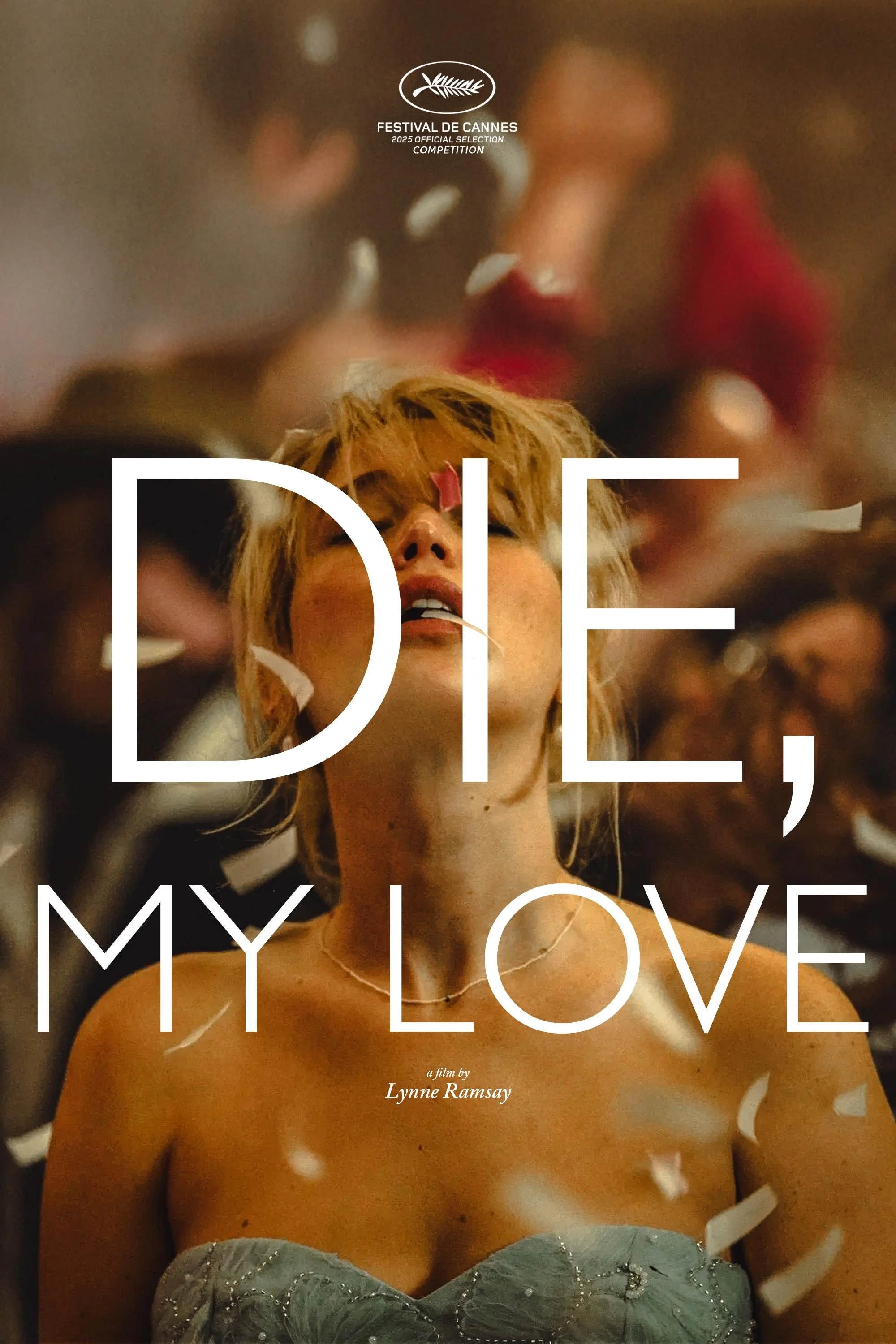Die My Love
Listen With Your Eyes.
One of the most anticipated titles for me at this year’s Cannes Film Festival was Die, My Love, the latest psychological drama from Lynne Ramsay, starring Jennifer Lawrence and Robert Pattinson. And as it turns out, I was absolutely right to look forward to it.
The film follows Grace and Jackson, a young couple who leave the noise of New York behind and relocate to Jackson’s childhood home in Montana. As they settle into their new life and welcome a child, Grace begins to unravel — isolated, overwhelmed, and slowly drowning in mental health issues that lead the story into deeply unpredictable territory.
Let’s address the obvious first: this is Jennifer Lawrence’s film. Her portrayal of a broken, aching, and desperately lonely woman is simply magnificent. Honestly, I’m ready to whisper it already — this could be an Oscar nomination in the making. Her performance is so fluid, so precise — she transitions between different mental states with grace and raw power. She’s electric when she tries to appear “normal,” never overplaying the emotional turbulence underneath. And when things spiral into darker, more disturbing moments, she doesn’t resort to melodrama — she stays grounded, terrifyingly human, and completely captivating.
Robert Pattinson plays Jackson with restraint and quiet precision — a well-meaning husband who either can’t see or refuses to see what’s happening right beside him. His slow realization that the world around him — and the woman beside him — is far more complex than he ever imagined is quietly devastating. Their chemistry sells it: we see how this love ignited, flickered, and ultimately burned out — all through their performances.
But Lawrence isn’t the only powerhouse behind this film. Lynne Ramsay delivers a masterfully controlled, visually striking, and emotionally loaded piece of work. Every frame is deliberate. The cinematography captures not only the sweeping, isolating landscapes but also the tight, suffocating interiors — all with equal precision. But what impressed me just as much was the sound design. This is a film that needs to be experienced in a proper cinema — with the right acoustics and the right immersion — because the sound isn’t just a supporting layer here; it’s a narrative force of its own. It doesn’t just complement the film — it pulls you inside it.
There’s a hypnotic power to this film — one that lingers long after the credits roll. And considering I was watching film after film at Cannes, the fact that this one stuck with me... means something. It’s weird. It’s emotionally demanding. It doesn’t hand you neat answers. And truthfully, the ending didn’t quite give me the resolution I personally wanted — I had a very specific image in mind for how it would wrap, and the film went somewhere else entirely. But I respect that.
Yes, at times it leans toward the abstract, perhaps even indulgent — but its psychological darkness blends beautifully with the raw drama and even moments of smart, unsettling humor.
Recently acquired by MUBI, Die, My Love is a film I truly hope will reach cinemas around the world soon — because it deserves to be experienced on the big screen, where its full emotional and sensory impact can really land.
8/10


